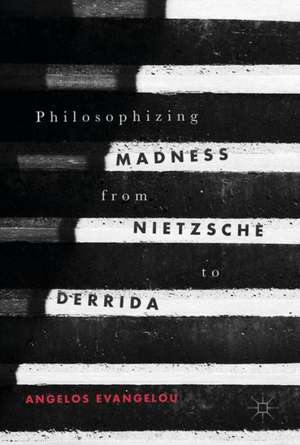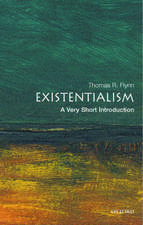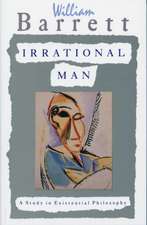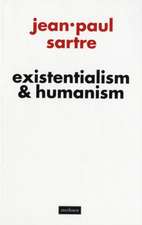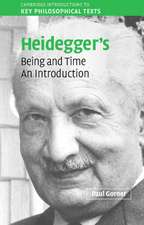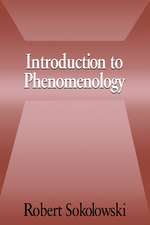Philosophizing Madness from Nietzsche to Derrida
Autor Angelos Evangelouen Limba Engleză Hardback – 23 aug 2017
| Toate formatele și edițiile | Preț | Express |
|---|---|---|
| Paperback (1) | 820.59 lei 43-57 zile | |
| Springer International Publishing – 13 mai 2018 | 820.59 lei 43-57 zile | |
| Hardback (1) | 856.83 lei 43-57 zile | |
| Springer International Publishing – 23 aug 2017 | 856.83 lei 43-57 zile |
Preț: 856.83 lei
Preț vechi: 1008.04 lei
-15% Nou
Puncte Express: 1285
Preț estimativ în valută:
163.95€ • 171.64$ • 135.66£
163.95€ • 171.64$ • 135.66£
Carte tipărită la comandă
Livrare economică 07-21 aprilie
Preluare comenzi: 021 569.72.76
Specificații
ISBN-13: 9783319570921
ISBN-10: 3319570927
Pagini: 275
Ilustrații: IX, 286 p. 6 illus.
Dimensiuni: 148 x 210 mm
Greutate: 4.85 kg
Ediția:1st ed. 2017
Editura: Springer International Publishing
Colecția Palgrave Macmillan
Locul publicării:Cham, Switzerland
ISBN-10: 3319570927
Pagini: 275
Ilustrații: IX, 286 p. 6 illus.
Dimensiuni: 148 x 210 mm
Greutate: 4.85 kg
Ediția:1st ed. 2017
Editura: Springer International Publishing
Colecția Palgrave Macmillan
Locul publicării:Cham, Switzerland
Cuprins
Chapter 1: The ‘Nietzsche Event’: Madness and the Limits of Becoming.- Chapter 2: Georges Bataille: Madness and the ‘Ethics of Vulnerability’.- Chapter 3: Michel Foucault: Madness and Philosophical Incapacity.- Chapter 4: Jacques Derrida: Philosophy Opens Up to Madness.- Conclusion: Responding to Madness: ‘Autobiographical Philosophy’.
Recenzii
“Philosophizing Madness, is an impressive feat of scholarly erudition. Evangelou, though a lecturer in Comparative Literature, has produced a work on an intense philosophical character debating one of the more crucial questions in contemporary Continental philosophy (in its French form).” (Guilel Treiber, Metapsychology Online Reviews, Metapsychology.Mentalhelp.net, Vol. 22 (15), April, 2010)
Notă biografică
Angelos Evangelou is Associate Lecturer in Comparative Literature at the University of Kent, UK. His other publications include works on Bataille and the ‘ethics of violence’, the aesthetic of the “mad” and the problem of empathy in Anna Kavan. His current research project is in border studies and Cypriot literature.
Textul de pe ultima copertă
Drawing connections between madness, philosophy and autobiography, this book addresses the question of how Nietzsche's madness might have affected his later works. It also explores why continental philosophy after Nietzsche is so fascinated with madness, and how it (re)considers, (re)evaluates and (re)valorizes madness. To answer these questions, the book analyzes the work of three major figures in twentieth-century French philosophy who were significantly influenced by Nietzsche: Bataille, Foucault and Derrida, examining the ways in which their responses to Nietzsche’s madness determine how they understand philosophy as well as philosophy’s relation to madness. For these philosophers, posing the question about madness renders the philosophical subject vulnerable and implicates it in a state of responsibility towards that about which it asks. Out of this analysis of their engagement with the question of madness emerges a new conception of 'autobiographical philosophy', which entails the insertion of this vulnerable subject into the philosophical work, to which each of these philosophers adheres or resists in different ways.
Caracteristici
Presents new perspectives on the work of Nietzsche, Bataille, Foucault and Derrida Offers a unique understanding of the many facets of madness and philosophy Opens up philosophical thought to autobiographical intervention Includes supplementary material: sn.pub/extras Includes supplementary material: sn.pub/extras
